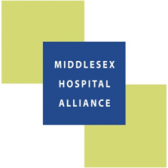Implementing 3D’s best practice guideline Organization: Middlesex Hospital Alliance

Summary
Throughout the course of the fellowship, I have advanced my clinical skills and acquired further evidenced based knowledge applicable to the inpatient setting in our acute care hospital. I have a much greater understanding of the pathology behind dementia, mild cognitive impairment, and delirium that is applicable to assessing a persons’ cognition with consideration to their proposed baseline cognitive function.
The evidenced based resources developed during this fellowship are best used in conjunction with each other. Various teaching strategies have been implemented in addition to the research and resources included in this document such as, PowerPoint presentations, one on one staff instructions, factual posters, and the creation of online guides. This author will continue to be a supportive clinical leader regarding delirium, dementia, and depression.
A Delirium Documentation Tool titled “About My Delirium” was constructed to serve as a working care plan for a person with suspected delirium. It aims to guide nursing staff to identify the underlying risk factors for delirium and provide sample non-pharmacologic interventions. The content within the Delirium Documentation Tool is accredited from RNAO 3D’s Best Practice Guideline.
The tool identifies priority non-pharmacologic interventions that are person centered priorities of care to prevent worsening delirium in addition to a documentation section for clinical observations and a section to document interventions used to manage episodes of delirium. Additionally, there is a section to document the effectiveness of strategies used a to address a person’s behavioural expressions. This serves to communicate for the oncoming shifts steps taken for delirium management and it works as a delirium care plan. The tool is optimally used for a hospitalized in-patient who screens positive for delirium, based on the CAM tool. We have added Cam Detection Criteria to each bedside chart to provide further criteria for nurses to assess a person’s cognition for delirium.
Outcomes
Through review of evidenced based literature including RNAO 3D’s BPG guideline I enhanced my clinical skill with recognizing the signs of hypoactive and hyperactive delirium and determining underlying factors that contributed to a person’s delirium. I Compiled literature Review into a PowerPoint presentation for delirium education. This was shown to nursing staff on the inpatient acute medicine unit.
By participating in an educational webinar on delirium by the Regional Geriatric Program of Toronto I further enhanced my clinical understanding of delirium. Content from webinar was influential with developing the “CAM detection criteria”
In collaboration with our hospital pharmacist and Nurse practitioner we developed an antipsychotic medication reference template. This aims to present the appropriate dosages, side effects, and expected clinical outcomes of antipsychotic medications for delirium. It is intended to be a reference guide for nurses and allied health further understand antipsychotic medications used for delirium and important information to assess for with each.
I have strongly enhanced my clinical assessment skills for delirium risk factors and the potential underlying causes of delirium. I have and will continue to provide nursing colleagues and allied health with my information obtained in patient assessment relevant to their delirium management. Additionally I have acquired skill communicating to person with delirium and discovered meaningful interventions (i.e patient reading out loud) that can help persons with delirium improve their cognitive function secondary to the medical treatment course for delirium provided in hospital.
Overall experience
The fellowship experience consisted of a lot of self-directed learning under the supervision of Ann Jarvie and Maureen Loft. I received support from them both and learned a tremendous amount during my time with Ann Jarvie. My favourite experiences would have been working one on one with persons on our unit living with delirium. It was rewarding seeing persons with delirium recover their cognitive function and at the time of discharge seeing their cognition much improved and closer to their baseline than when they were in the peak of their delirium.
I enjoy providing education to staff regarding delirium and dementia. I will admit the challenges with trying to educate staff or try to suggest practice enhancements or recommendations particularly if they are low support of practice change. I realize organization change is work in progress, I am acquiring the respect and credit of many staff who seem to want to involve me with assessing patients with confusion or presenting with behavioural expressions. I am grateful to have so many supportive colleagues to help roll out the resources developed during this fellowship.
